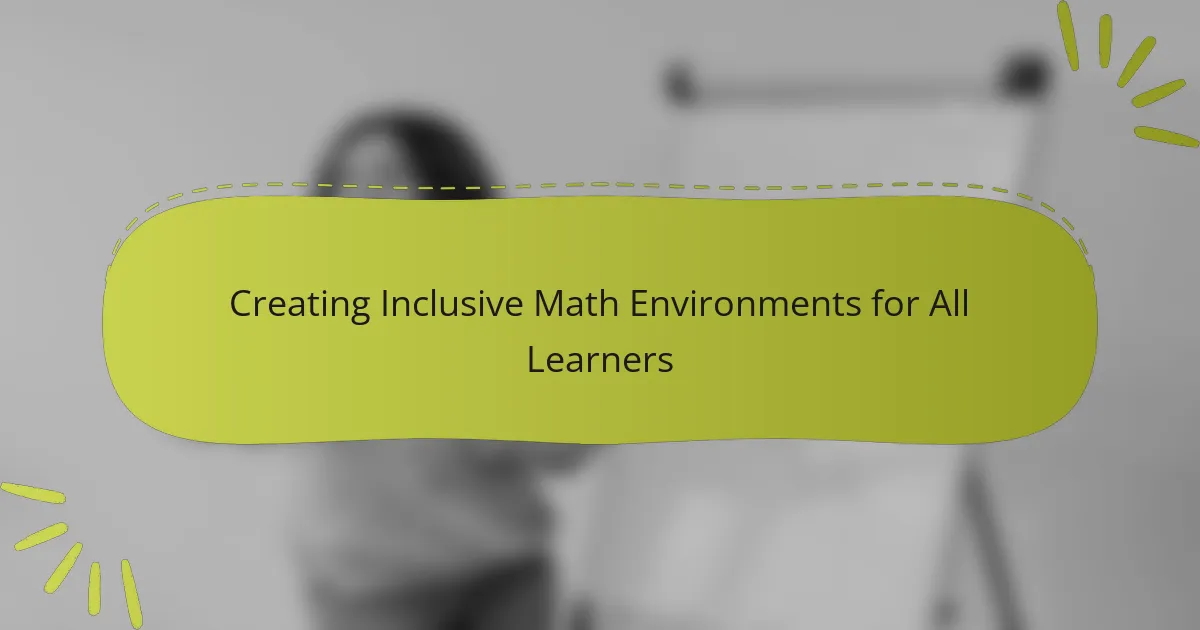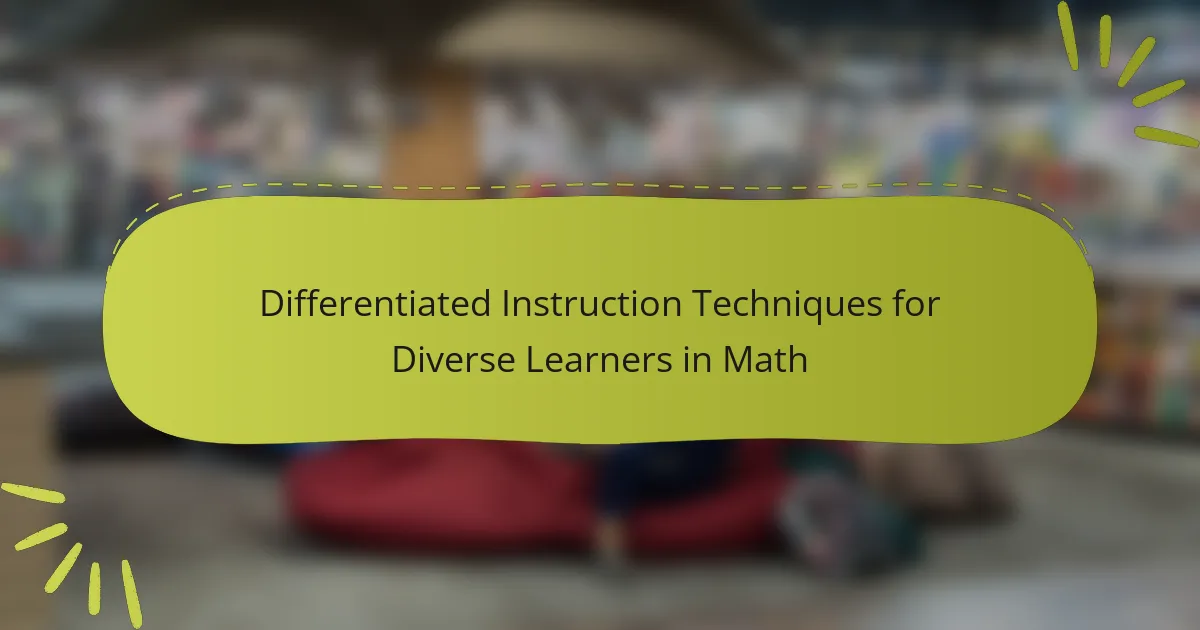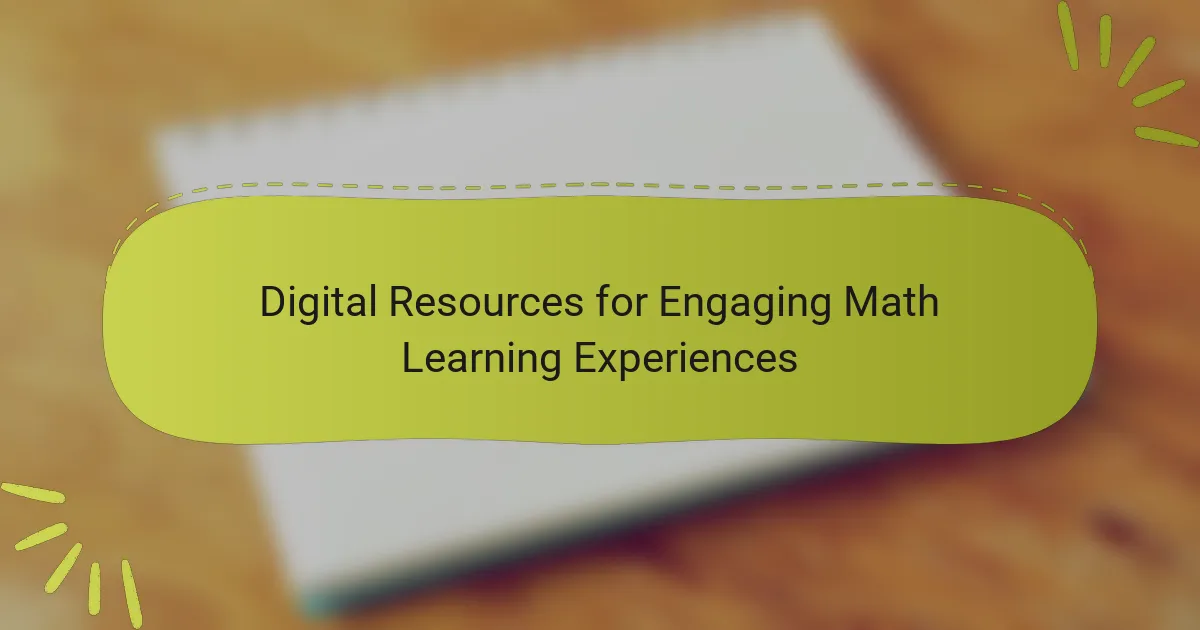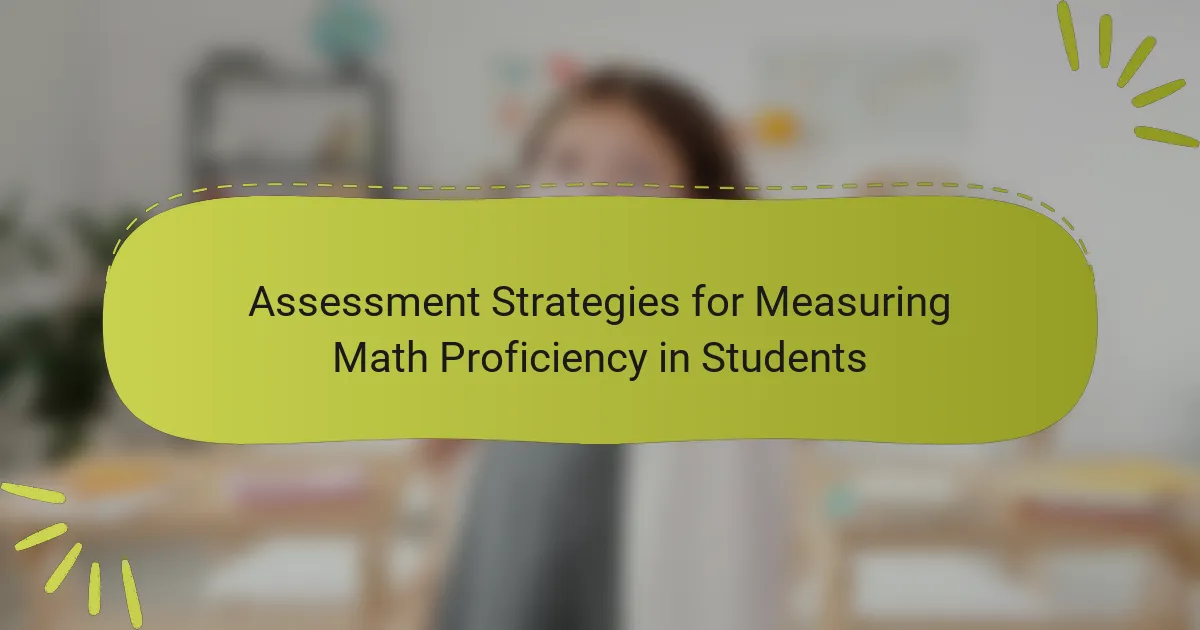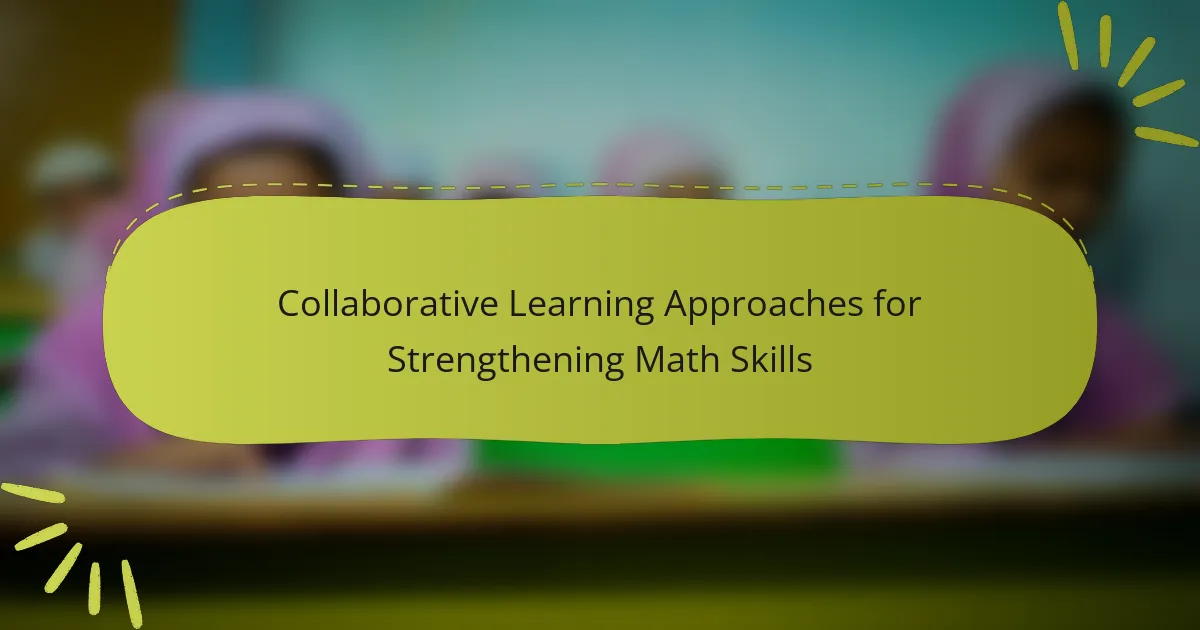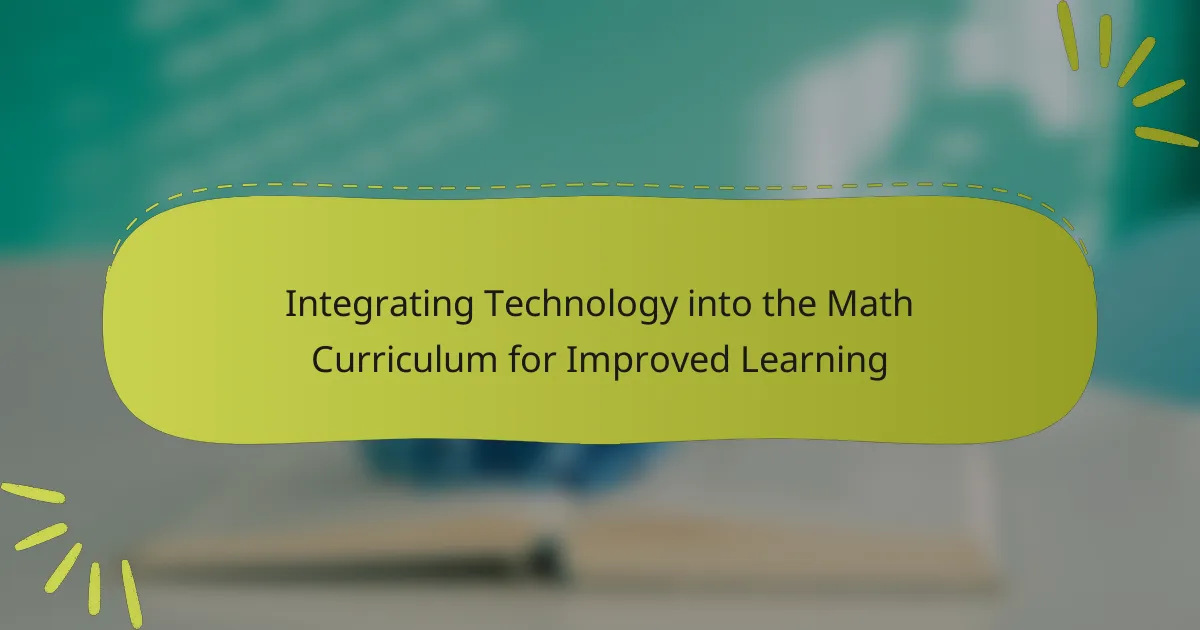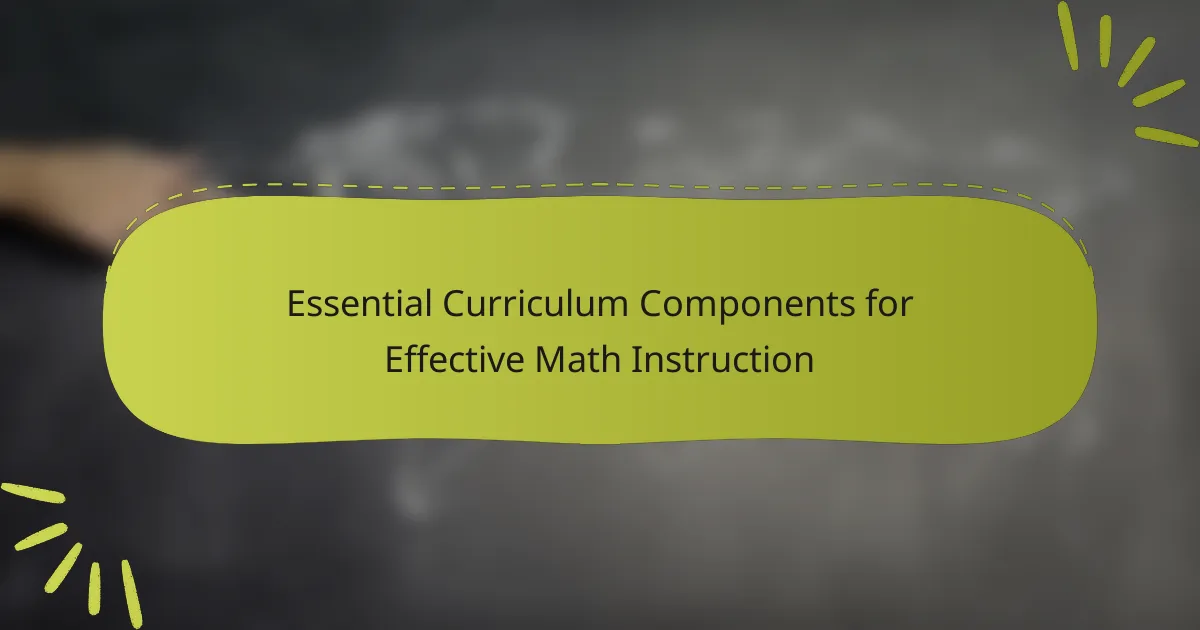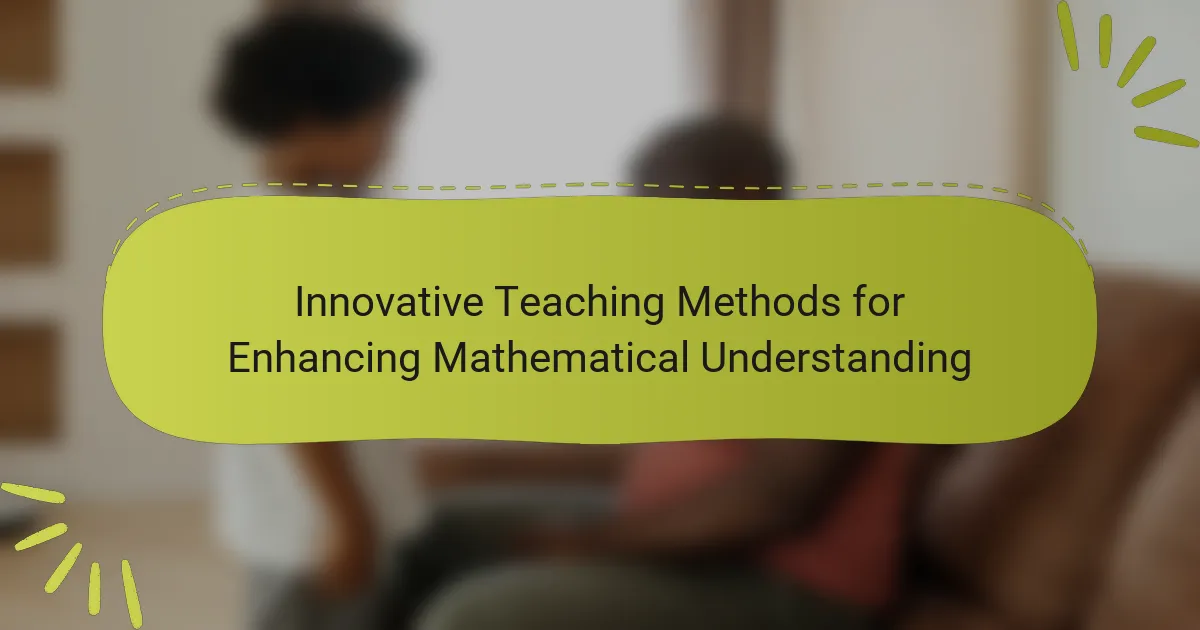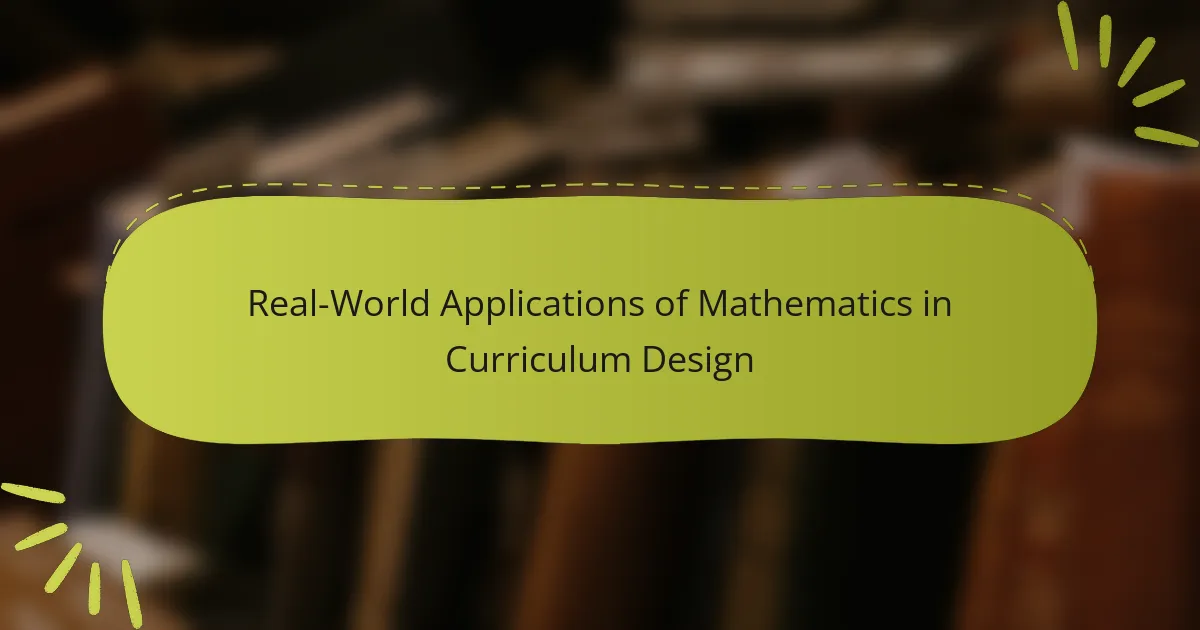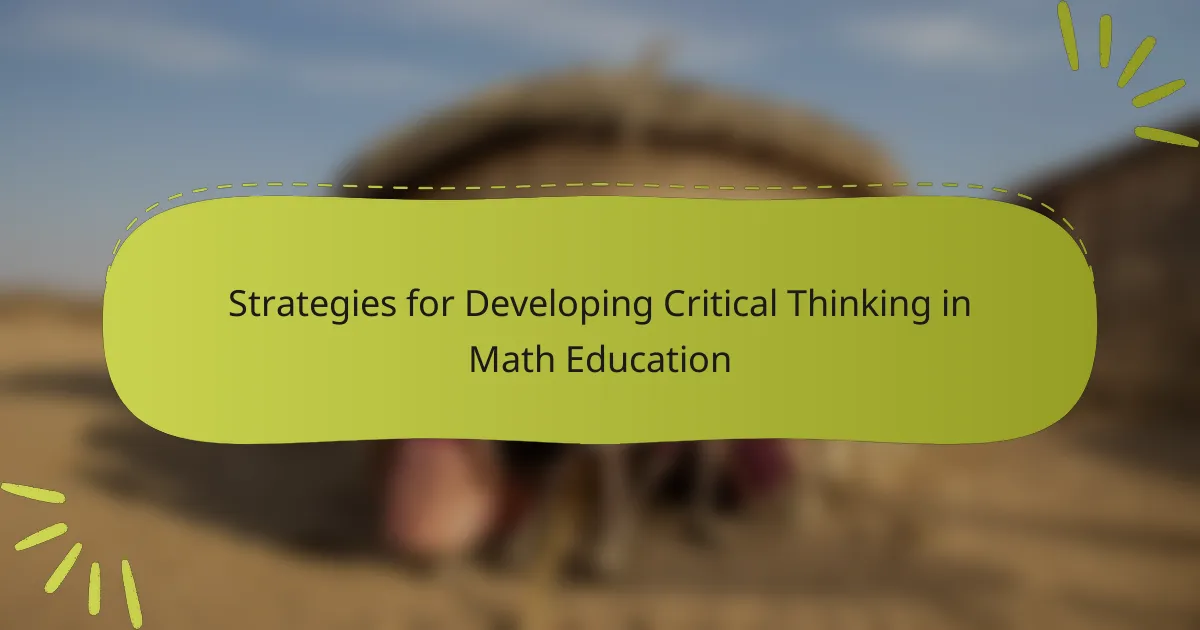
Strategies for Developing Critical Thinking in Math Education
The article focuses on strategies for developing critical thinking in math education. Key methods include problem-based learning, which encourages students to tackle real-world problems; Socratic questioning, which promotes deeper understanding through dialogue; and collaborative learning, which enhances teamwork and diverse perspectives. Additionally, the integration of technology is highlighted as a means to create interactive experiences…
